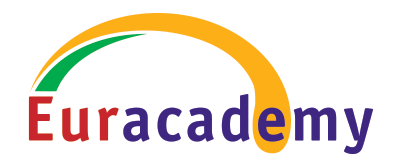Event 9
Aims of the Event
- raise awareness about the “CO-GREEN activators” initiative, within the partner organisations and in the broader community,
- ensure the presence of a meaningful number of informed activists within the community, who may eventually choose to get engaged in the project.
The Event no. 9 was launched with one public meeting per territory, open to local media, activists, NGOs, and other stakeholders. Interested subjects were invited to join the project initiative; these may have very different profiles, such as: activists already involved in the partners NGOs, young students, retired elderly, etc.
The CO-GREEN activators were people who, as a result of their contacts in/with the community, assisted in creating social cohesion and implementing the other participatory methods used in the project. Their role is critical because as actors from within the communities they have a perspective in and on the communities that academic or other figures can hardly have. The Event was concluded with the selection and engagement of CO-GREEN activators in each partner country.
Dates
- Poland: 15.12 (Górno), 13.12 (Wiązowna), 18.12 (Elbląg), 21.12(Starachowice)
- Italy: 25.10 (Cosenza), 4.11 (Magione), 21.11 (Cavalese)
- Croatia: 19.12 (Opatija)
- Greece: 06.12 (Karditsa)
Participants
Poland
At the meetings in Górno, Elbląg, Starachowice and Wiązowna the green activists confirmed their dedication and engagement to the CO-GREEN project – around 12-15 persons form each community declared their participations as activators. All of them form small project teams aimed at preparing a green activity under the project to unleash the energy in the entire community and to channel it for the benefit of the green transition of each community. During all the meetings: in Górno, Elbląg, Starachowice and Wiązowna dedication the project timetable and budget were detailed. An environmental workshop is planned for late January/early February to equip participants with the knowledge and skills necessary for successful project implementation. A meeting on the practical aspects of the project is planned for March. Project implementation is planned for late April/early May. A preliminary budget outline was also discussed, which will need to be consulted with specialists regarding feasibility and implementation stages.
Italy
During the meetings in Cosenza, Magione and Calavese, the importance of the role of the community activator and the skills necessary to carry out the planned activities were discussed. The main focuses of discussion are the following: profile of the community activator, “green” community activator, transversal skills, green skills. At the end of the meeting, a group information meeting and individual interviews were held from which the who will play the role of activators in the community were selected. The community activator, or community manager, plays a key role in facilitating interaction and participation within an online or offline community. Its primary goal is to cultivate a positive, engaging and cohesive environment within the community. The community activator plays a crucial role in maintaining a positive and dynamic environment, thus contributing to the long-term success and growth of the community. The ability to communicate effectively, manage social dynamics and adapt to community needs are key elements of a successful community activator.
Croatia
The participants learned about the roles of activators, as well as what support they will get from the trainers. This included descriptions of the trainers, how they will mentor them and also the support they will receive from the project partners. One of the possibilities offered is that the University of Rijeka will organize a series of events about green issues, with the aim of making such issues more visible in the wider public sphere. Following this, the mentors (including some who had participated in the Winter Academy in Greece) presented their experience and their competencies to the CO-GREEN activators. They gave background information about their experience in working with the local community. As planned there will be a variety of topics covered by the training such as workshops in communication skills and work in the local community. In addition, potential CO GREEN activators were invited to propose more topics that will empower them to work better in the communities. Participants requested for some workshops to be organized – on how to run campaigns, different methodologies – guerrilla marketing and the outreach method. Potential activators also said that it would be useful to learn more on how to reach people. Fifteen activators will be chosen from the participants who attended, as well those who were unable to come to this event for health and other reasons. They will be chosen to implement projects in and with the community.
Greece
Event 9 of the Co-Green initiative witnessed active participation from attendees who had previously engaged in the Winter school, event 8. This event focused on informing participants about the role and responsibilities of green activators. A key aspect of the event involved a comprehensive discussion on how to coordinate the efforts of green activators at the local level, specifically in Karditsa. Participants were briefed on upcoming events in detail, providing them with a clear understanding of the commitment required for their active involvement. The events were outlined, emphasizing the importance of their role in the larger Co-Green initiative. Recognizing the need for substantial resources to train and engage activators in capacity-building activities, participants were informed about the significant time investment required. Understanding the commitment involved, participants were given the option to reconsider and decide, within a specified deadline, whether they could actively participate as green activators. This approach allows individuals to assess their availability and make an informed decision about their level of engagement. 16 participants expressed their willingness and commitment to become green activators with a strong interest in contributing to the Co-Green initiative and promoting sustainability in Karditsa.
The Co-green project is part of the CERV funding program – ” Citizens, equality, rights and values ” -, launched by the European Commission in 2021 and active until 2027.The project is funded by the European Commission .

